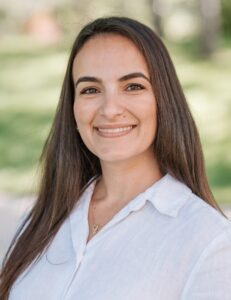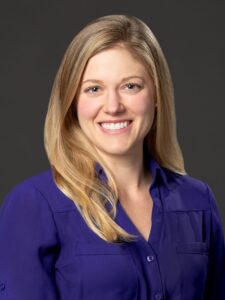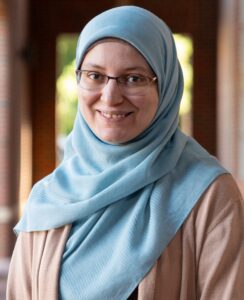From Lab to Pasture -- Industry Mentorship Shaping The Next Generation of Beef Research
Researchers play a critical role in the Canadian beef cattle industry. The research happening today could save you money on vet bills tomorrow, improve the quality of beef you produce or help you better manage parasite loads. Engaging industry leaders with researchers who study cattle, beef, genetics, feed or forage production is mutually beneficial. These connections enable researchers to gain a deeper understanding of industry needs and foster the sharing of research findings with a practical, solution-oriented focus.
The Beef Cattle Research Council (BCRC) Beef Researcher Mentorship Program provides opportunities for new researchers to be paired with notable leaders in the Canadian beef industry who will offer valuable guidance and support to foster greater engagement across the industry. Here are seven researchers now working directly with industry mentors to ensure their discoveries translate into practical solutions for your operation or the Canadian beef industry at large.

2025-26 Beef Researcher Mentorship Program Mentees:

Dr. Aneesh Thakur, Principal Scientist, University of Saskatchewan
Dr. Thakur is an early-career investigator who started his first principal scientist position at the Vaccine and Infectious Disease Organization (VIDO) in August 2022. His research program focuses on improving animal and human health by creating novel therapeutic and prophylactic agents using nanoparticle-based bioengineering and delivery strategies.
He leads the Laboratory of Vaccine Engineering and Immunology, which investigates topics at the interface of immunology, pharmaceutical engineering and targeted drug delivery to address current challenges in vaccine development. Dr. Thakur’s research involves nanoparticle-based bioengineering strategies to enhance the delivery and efficacy of veterinary and human vaccines and adjuvants, as well as non-invasive vaccine and nasal vaccines. His goal is to develop and deliver novel mucosal vaccines and therapies that improve animal and human health against respiratory infections.
Dr. Flavia de Oliveira Scarpino van Cleef, Assistant Professor, University of Saskatchewan

Dr. Flavia van Cleef is an expert in forage-based ruminant systems and greenhouse gas (GHG) mitigation strategies. She currently serves as the Industry Chair in Integrated Forage Management and Utilization at the University of Saskatchewan, leading research and extension initiatives to enhance forage management and sustainability in livestock production systems.
Despite not coming from an agricultural background, her passion for livestock led her to earn a bachelor of science degree in Animal Science from the University of São Paulo State (UNESP). She quickly immersed herself in research, working on beef cattle and sheep production, and later expanded her expertise through an internship at Kansas State University. Her master’s research at UNESP focused on sheep grazing in silvopastoral systems and exploring sustainable livestock production. This interest led her to pursue a Ph.D. at the University of Florida, where she investigated the effects of tannin-rich forages on ruminant GHG emissions. Her work combined in vitro and in vivo studies, using stable isotopes to understand the role of plants’ secondary compounds in ruminal fermentation, as well as the environmental impacts of forage-livestock systems.
Dr. Kaidi Wang, Assistant Professor, University of Saskatchewan

Dr. Wang is a food microbiologist currently working as an assistant professor in the Department of Food and Bioproduct Sciences at the University of Saskatchewan. She is also an Agriculture and Agri-Food Innovation Chair in Applied Microbiology.
Throughout her academic journey, she has led various projects focused on enhancing food microbial safety. She is broadly interested in the rapid detection of foodborne pathogens and understanding microbial ecology in the agri-food system using novel techniques, such as vibrational spectroscopy, microfluidic “lab-on-a-chip” technology, machine learning and metabolomics. Her research endeavors also extend to the application of novel molecular tools, sensor-enabled data and artificial intelligence probing microbial behavior during food fermentation.
Dr. Kristen Edwards, Assistant Professor, University of Guelph

After earning her Doctor of Veterinary Medicine from the Ontario Veterinary College in 2014, Dr. Edwards began her career at Perry Veterinary Clinic, a large dairy-focused practice in western New York. In 2016, she returned to Ontario to continue practicing dairy and beef production medicine, joining Tavistock Veterinarians, where she remained in private clinical practice for almost a decade.
Driven by a desire to contribute more broadly to the industry, Kristen pursued a Ph.D. in calf health management, focusing on factors that influence success during the preweaning and periweaning periods. In 2025, she joined the Department of Population Medicine at the Ontario Veterinary College as an assistant professor in ruminant health management. Passionate about beef calf health and nutrition, her research program centers on nutritional and nutraceutical interventions to improve antimicrobial usage and enhance farm profitability.
Dr. Muhammad Tufail, Research Scientist at Agriculture and Agri-Food Canada Lacombe Research and Development Centre

Dr. Tufail is a new research scientist in robotics and automation in livestock and meat production at the Lacombe Research and Development Centre. He holds a Ph.D. with a specialization in manufacturing and mechatronics from the University of British Columbia, an M.Sc. degree in mechatronics engineering from the Asian Institute of Technology in Thailand and a B.Sc. degree in computer systems engineering. From 2017 to 2022, he served as an assistant professor in the Department of Mechatronics Engineering at the University of Engineering and Technology, Pakistan. Dr. Tufail has also worked as a co-director of the Advanced Robotics and Automation Laboratory at the National Centre of Robotics and Automation in Pakistan, where he was responsible for developing IoT systems and AI-powered robotic platforms to achieve variable-rate agricultural spraying.
As a part of his postdoctoral fellowship at the University of British Columbia, Dr. Tufail worked on exploring and applying robotics and automation for autonomous outdoor inspection and monitoring of oil fields at Cenovus Energy Inc. During his second postdoctoral fellowship at the University of Alberta, he developed a prototype mobile robotic manipulator for autonomous berry harvesting in controlled environments. He has published his research on robotics, artificial intelligence and embedded systems in the fields of home care robotics, robotic teleoperation and precision agriculture in international peer-reviewed journals and has made scientific presentations at international conferences.
Dr. Nisha Puthiyedth, Assistant Professor, Thompson Rivers University

Dr. Puthiyedth is an assistant professor of computing science at Thompson Rivers University. With a passion for interdisciplinary research, her work focuses on applying computational methods to address real-world challenges in healthcare and agriculture. She leads projects on antimicrobial resistance in beef cattle and the impact of climate-induced allergens on respiratory health, using advanced machine learning techniques to drive data-driven solutions.
She earned her Ph.D. from the University of Newcastle, Australia, and completed a postdoctoral fellowship at the University of Saskatchewan. She also holds an M.Sc. in bioinformatics from the University of East London. Her research is distinguished by its focus on feature selection, fairness in healthcare AI and the integration of genomics with public data.
Beyond her research, Dr. Puthiyedth is a dedicated educator who supervises graduate students and teaches courses in both computer science and bioinformatics. She is also committed to mentoring the next generation of scientists, particularly through outreach initiatives that support women in STEM. Her career reflects a deep commitment to equity, innovation and practical impact.
Dr. Sawsan Ammar, Assistant Professor and Clinical Parasitologist, University of Calgary

Dr. Ammar earned a veterinary degree from Sadat City University in Egypt in 2008. She developed an interest in diagnostics early in her career, gaining training experience in various diagnostic labs across Egypt. Her passion for infectious and zoonotic diseases led her to pursue a master of veterinary sciences degree, focusing on tuberculosis in buffaloes. During this time, she became familiar with government meat inspection policies, slaughterhouse processes and the importance of outreach and education in improving public perception and prevention of diseases.
In 2015, Dr. Ammar was awarded a highly competitive scholarship to study abroad and was generously hosted by Dr. Richard Gerhold at the University of Tennessee. Upon completing her Ph.D., she accepted a two-year postdoctoral position focused on improving and exploring the use of the InPouch media for culturing various trichomonad and histomonad species. She moved to Canada in 2022 and worked under Dr. John Gilleard, where she investigated the use of mass spectrometry as a tool for identifying ectoparasites of cattle, such as lice and ticks. She was awarded a National Center for Veterinary Parasitology fellowship in 2023 to support her clinical training.
Currently, Dr. Ammar is an assistant professor at the University of Calgary and the clinical parasitologist supervising the parasitology diagnostic section at the Diagnostic Services Unit. In this role, and through her research, she aims to advance diagnostic capabilities in Alberta and assist producers in managing challenging parasitic diseases.
Sharing or reprinting BCRC posts is welcome and encouraged. Please credit the Beef Cattle Research Council, provide the website address, www.BeefResearch.ca, and let us know you have chosen to share the article by emailing us at [email protected].
The BCRC is funded by a portion of the Canadian Beef Cattle Check-Off.
Your questions, comments and suggestions are welcome. Contact us directly or spark a public discussion by posting your thoughts below.
